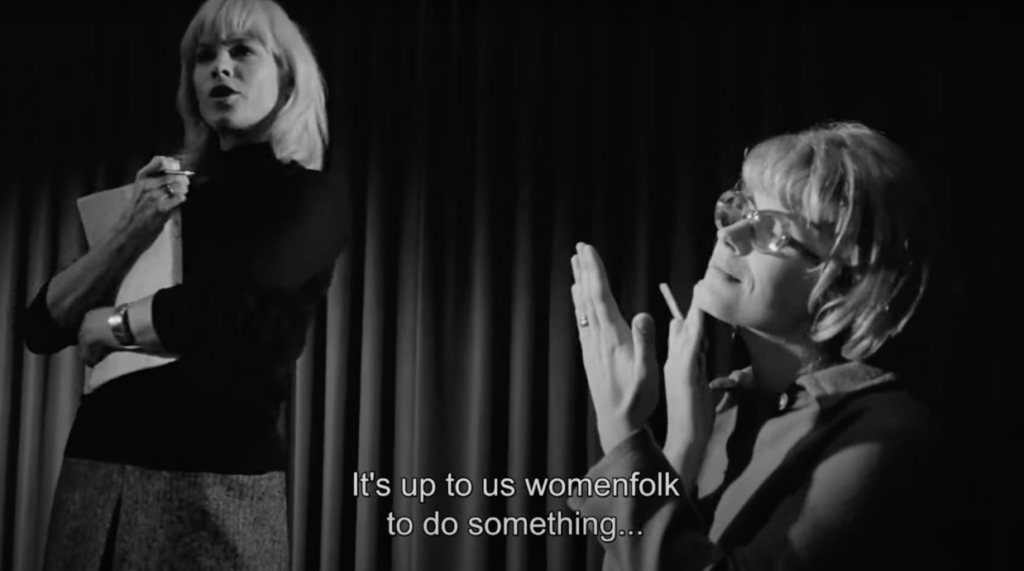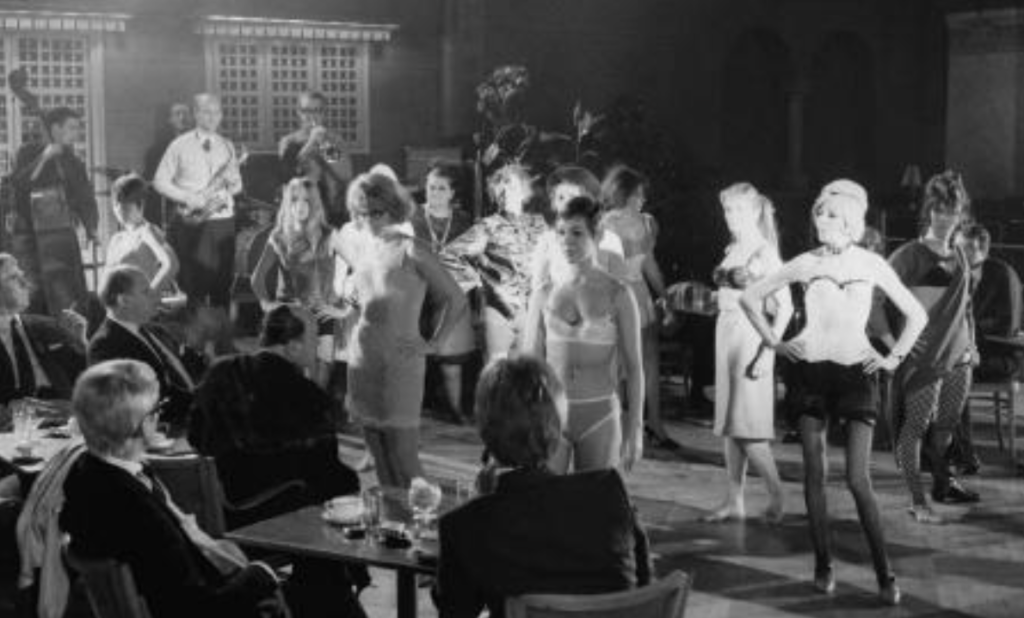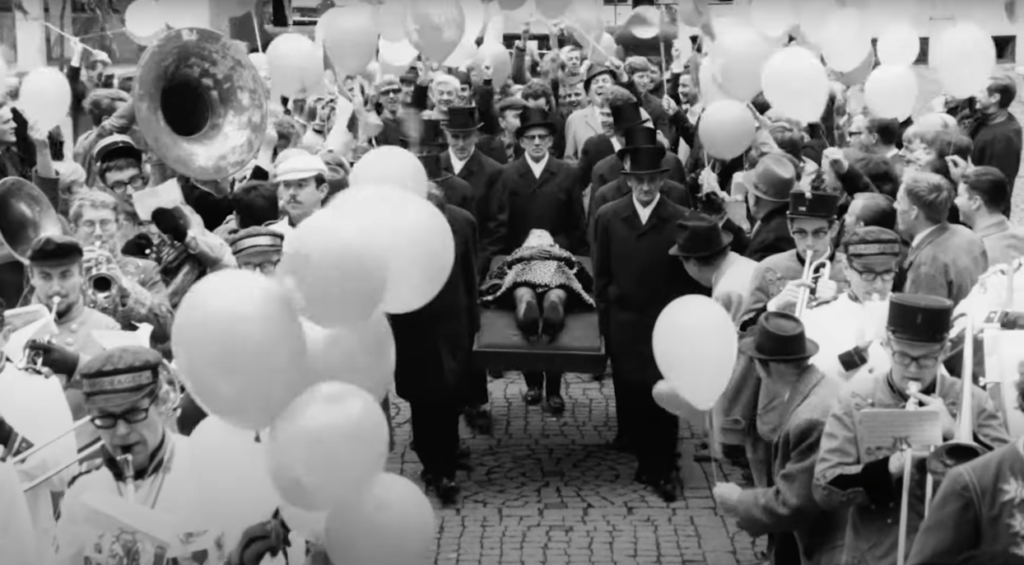| Veda Lawrence |

The Girls plays at the Trylon Cinema from Sunday, September 3rd, through Tuesday, September 5th. Visit trylon.org for tickets and more information.
Revisiting The Girls in a cultural moment dominated by Barbie movie discourse, I could not help but muse about the perils of improperly reappropriating anti-feminist source material to a feminist narrative. Where the problematic seed at the heart of Barbie is pretty self-explanatory, let’s take a moment to contextualize Lysistrata.
As far as Aristophanes goes, this play is atypical. Not only does it mark a point in his career where he began to deviate from the conventions of Old Comedy, but it also seems to center female power as a force capable of bringing armies to their knees (literally). The women of Sparta and Athens decide to go on a sex strike to force their husbands to call peace. You can see where this narrative is rife with potential for feminist reinterpretation. However, I think it is critical to acknowledge that the play’s original (male) audience would not be viewing the sex strike as a viable threat to their political objectives, but rather as laughable, preposterous. For the original audience, the humor in the play would reside in mocking the female characters and dismissing their efforts as trite and ridiculous.
This is still true for a sector of modern viewers. In The Girls, audiences consistently fail to grasp the feminist undertones that the main actors are attempting to instill within the play. Indeed, they still laugh at the notion of a woman attempting to instill any sort of political change. At times, The Girls skirts dangerously close to the realm of anachronism, attempting to assert that Aristophanes had some sort of feminist agenda behind this play. However, the ultimate success of the film is demonstrating that contemporary audiences were no closer to feminist enlightenment than the ancient ones. Neither the audiences, nor the men in the actresses’ lives will take to heart the message that the actresses are working so desperately to depict—women, both in ancient times, and today, are relegated to the role of passively sexual participants, utterly devoid of other human agency.
In fact, this theme becomes more harrowing when one pauses to consider the contrast between the modern production and the ancient ones. In Aristophanes’ time, the play’s humor hinged on misogyny, a willingness to laugh at the female will to power, and a general acceptance that sex was the only power a woman could hold claim to, and a weak one at that. The protagonists of The Girls attempt to use this play as a feminist call to power instead. Their Lysistrata is subversive, a comment on how women must use whatever power they are afforded by patriarchy to combat it. Putting aside whether this anachronism was well-executed, the main point of the film is that modern audiences fail to grasp that reading of Lysistrata.
The protagonists are laughed offstage, their attempts at feminist commentary are mocked and dismissed; audiences and the men in their lives continue to view Lysistrata’s sex strike and any similar movements in the real world as trite and cute, not anything to truly be taken seriously. Zetterling provides us with a narrative that demonstrates the ultimate confluence between the past and the present: modern audiences are no more capable of taking Lysistrata (the character) seriously than ancient ones were.

It can be daunting to confront a world dominated by men and misogyny, as Zetterling acutely demonstrates. The scene where our main protagonist is laughed offstage, pulled off by her male costar provides us with an overt example of masculinity quelling feminist discourse. If only there was a way to ridicule and delegitimize the men as they do the women! Ah wait! There is! If only the film decided to lean into the source material and present the modern viewer with some phalloi. You see, ancient comedy frequently featured comic phalluses as a costuming archetype. Think of them as ancient clown noses, signaling to the viewer that they were viewing a comic play. Lysistrata in particular made use of these phalloi, as they played a very literal role in the plot. As the men grew progressively more frustrated, so did their um…false appendages. All too often, modern adaptations of ancient comedy forgo this essential component of the original, shying away from what may be considered vulgar to a modern viewer. This prudishness could be forgiven when it comes to adaptations of Clouds or Wasps–plays for which the erect penis does not play a central role. However, Zetterling utterly lacks phalloi in a play whose dramatization hinges on the progressive erection. What better way to undermine male power than to overtly affiliate them with that appendage which they hold most dear? To make the phallus laughable would be the cherry on top of a film about usurping masculine domination.
The real travesty here is the wayward dick joke, the intellectual dishonesty of robbing a modern audience of a taste of the true lunacy that is Aristophanes. These phalloi would clink grandly into the collection pots of comedy. Give the audience phalluses, goddammit! Let them eat…well, you know.

Edited by Olga Tchepikova-Treon
